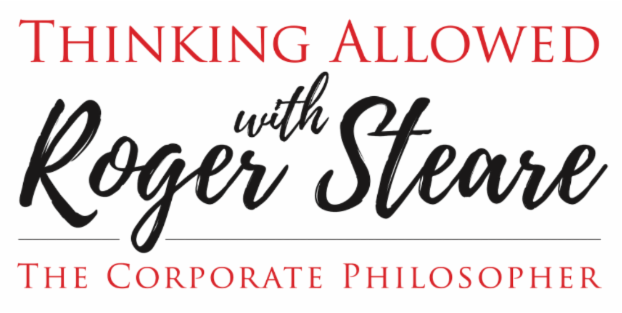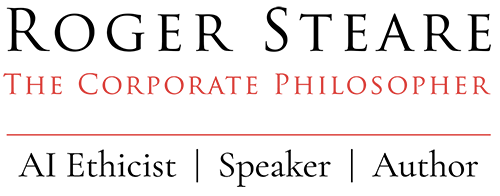Working in a moral vacuum

I found the first assignment more fulfilling than the second because this government understood that humanity has already evolved moral values and norms of behaviour over the last 250,000 years. These “universal moral values” can be found in the study of archaeology, anthropology, history, religion, literature, sociology, psychology and, of course, moral philosophy. My task was to synthesize these insights, and from this exercise, I demonstrated that these values include love (compassion), fairness (justice), wisdom, humility, courage (resilience), and excellence. If we live our lives according to the moral values we believe in, we have integrity. If we don’t, we call this hypocrisy.
The second assignment was more challenging not because of the AI perspective but because, whilst the business had some aspirational values, none were moral values. I described this as a “moral vacuum” to one of the senior executives, who found this painfully funny because he knew it was true! He and many of his colleagues clearly lived and worked with strong personal moral values, but the business didn’t understand moral values.
This has been a consistent challenge in my work as The Corporate Philosopher. In 2003, I conducted some research with all the FTSE100 financial services firms, asking them to describe their values, their moral reasoning processes, and who was responsible for ethics. Most of the values described were trite, meaningless, boilerplate language. Not a single firm could articulate any moral reasoning process other than HiPPO (the “Highest Paid Person’s Opinion”), and the worst answer to the question of who was responsible for ethics was “Head of Group Communications”. I preferred the answer from just one firm, which simply said, “Everyone”.
Many ongoing research programs, such as GLOBE and the Values Institute, aim to understand the most consistent corporate values worldwide and how they contribute to trust and well-being. And yet, whilst “integrity”, “ethics”, and “moral principles” are mentioned, they are rarely explored in depth and are given no more weighting than “goal orientation” or “teamwork”, values which could help any organisation to build and run a gulag or a death camp.
To fill this moral vacuum, I have worked with teams to help them understand their moral values and how they prefer to make ethical decisions using the MoralDNA psychometric profile. You can try it for FREE for personal use under a Creative Commons licence. You may then want to suggest to colleagues that you join other employers who have assessed the moral values that people actually believe in!
When scientific power outruns moral power, we end up with guided missiles and misguided men.
Dr. Martin Luther King, Jr.
Further Reading
MoralDNA Reports with Chartered Management Institute, EY, Oliver Wyman, and PwC

Thinking Allowed is a weekly blog of essential reading for anyone interested in better thinking and decision-making at work. It is written by Roger Steare, the Corporate Philosopher, a Financial Times columnist and author of books and ebooks with sales of over 600,000 copies.
By submitting this form, you are consenting to receive marketing emails from: Roger Steare. You can revoke your consent to receive emails at any time by using the SafeUnsubscribe® link, found at the bottom of every email. Emails are serviced by Constant Contact
